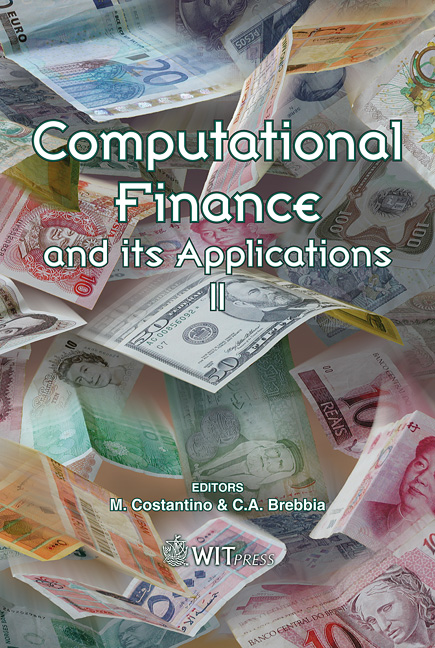Contingent Claim Valuation With Penalty Costs On Short Selling Positions
Price
Free (open access)
Transaction
Volume
43
Pages
10
Published
2006
Size
399 kb
Paper DOI
10.2495/CF060151
Copyright
WIT Press
Author(s)
O. L. V. Costa & E. V. Queiroz Filho
Abstract
In this paper we consider a discrete-time finite sample space financial model with penalty costs on short selling positions.We start by presenting a necessary and suf- ficient condition for the non-existence of arbitrage opportunities. This reduces to the existence of a martingale measure for the case in which the penalties are zero. Next we consider the problem of contingent claim valuation.Our main result states that, under certain conditions, for every contingent there will be a seller price and a buyer price, with a perfect portfolio replication for each of them. Again when the penalty costs on short selling positions are zero, our conditions coincide with the traditional condition for the market to be complete. An explicit and constructive procedure for obtaining hedging strategies, not necessarily in the binomial framework, is presented. Keywords: transaction costs, perfect replication, bid and ask option pricing. 1 Introduction The general theory for contingent claim valuation considers that the prices for a buying position and a short selling position in a security are the same. However in practice these values are not the same, due to penalty costs on short selling positions. This penalty can been seen as a premium risk charged on a short selling position or on the way in which the bid and ask process affects the prices. The subject of pricing derivatives with transaction costs and portfolio selection under transaction costs is of practical importance, and has been in evidence over the last years. Two types of transaction costs are considered; fixed costs, which are paid whenever there is a change of position, and proportional costs, which are charged according to the volume traded. Several different approaches to the prob-
Keywords
transaction costs, perfect replication, bid and ask option pricing.





